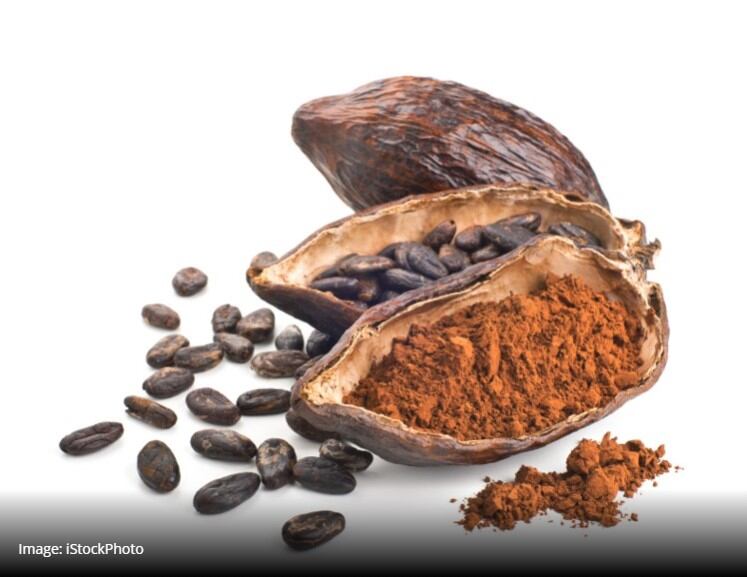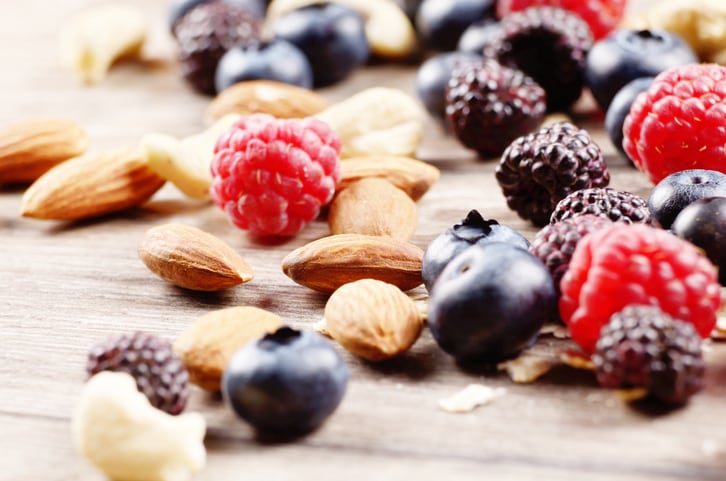The trial results reveal 14 of 18 participants saw these improvements after ingesting the flavanols with further tests suggesting their intake may only be beneficial in cognitive tasks that are more challenging.
“Although most people benefited from flavanol intake, there was a small group that did not," says Catarina Rendeiro, a researcher and lecturer in nutritional sciences at the University of Birmingham.
“Four of the 18 study subjects had no meaningful differences in brain oxygenation response after consuming flavanols, nor did their performance on the tests improve.
"Because these four participants already had the highest oxygenation responses at baseline, this may indicate that those who are already quite fit have little room for improvement," Rendeiro adds.
"Overall, the findings suggest that the improvements in vascular activity after exposure to flavanols are connected to the improvement in cognitive function."
Beneficial effects of cocoa flavanols on endothelial function are related to increases in nitric oxide (NO), bioavailability which can be affected in the early stage vascular disease.
Whilst flavanols’ acute effects have been attributed to epicatechin metabolites, the short to long term benefits may be also driven by gut-derived metabolites, although this is unconfirmed.
More research suggests these flavanols may protect against cognitive decline in ageing and cognitive resilience to neuropsychiatric disorders and stress.
Yet, the magnitude of which increases in circulatory levels of NO by flavanols can translate into benefits in the brain vasculature, and thus cognitive performance, is not well understood.
Study details
Along with the University of Illinois at Urbana-Champaign, the team enrolled 18 adult non-smokers with no known brain, heart, vascular or respiratory disease.
The team first tested the subjects before their intake of cocoa flavanols. Next, in two separate trials, subjects were asked to consume flavanol-rich cocoa, whilst in another they consumed processed cocoa with very low levels of flavanols.
Neither the participants nor researchers knew which type of cocoa was consumed in each of the trials.
Around two hours after cocoa consumption, subjects breathed air with 5% carbon dioxide as a way of challenging brain vasculature to determine how well it responds.
“The body typically reacts by increasing blood flow to the brain,” explains University of Illinois at Urbana-Champaign psychology professor Gabriele Gratton. "This brings in more oxygen and also allows the brain to eliminate more carbon dioxide."
Further tests saw subjects challenged with complex tasks that asked them to manage contradictory or competing demands.
The team found subjects had a stronger and faster brain oxygenation response after exposure to cocoa flavanols than they did at baseline or after consuming cocoa lacking flavanols.
"The levels of maximal oxygenation were more than three times higher in the high-flavanol cocoa versus the low-flavanol cocoa, and the oxygenation response was about one minute faster," adds Rendeiro.
11% brain boost?
Results found those consuming cocoa flavanols, solved the more challenging cognitive tests 11% faster than they did at baseline or when they consumed cocoa with reduced flavanols.
However, the team found no measurable difference in performance on the easier tasks.
"This suggests that flavanols might only be beneficial during cognitive tasks that are more challenging," Rendeiro says.
Additional findings revealed that four of the 18 study subjects had no meaningful differences in brain oxygenation response after consuming flavanols, nor did their performance on the tests improve.
“We suggest that the underlying mechanisms at play centrally may be similar to the ones detected in the peripheral vasculature, through hypercapnia-induced increases in NO release from the endothelium in cerebral arteries,” the team concludes.
“The findings here can have important implications for using dietary strategies containing plant-derived flavanols for enhancement of blood oxygenation and cognitive performance in healthy populations, as well as for populations at higher risk or to help recover and treat brain injuries and disease.”
Source: Scientific Reports
Published online: DOI: 10.1038/s41598-020-76160-9
“Dietary flavanols improve cerebral cortical oxygenation and cognition in healthy adults.”
Authors: Gabriele Gratton et al.



